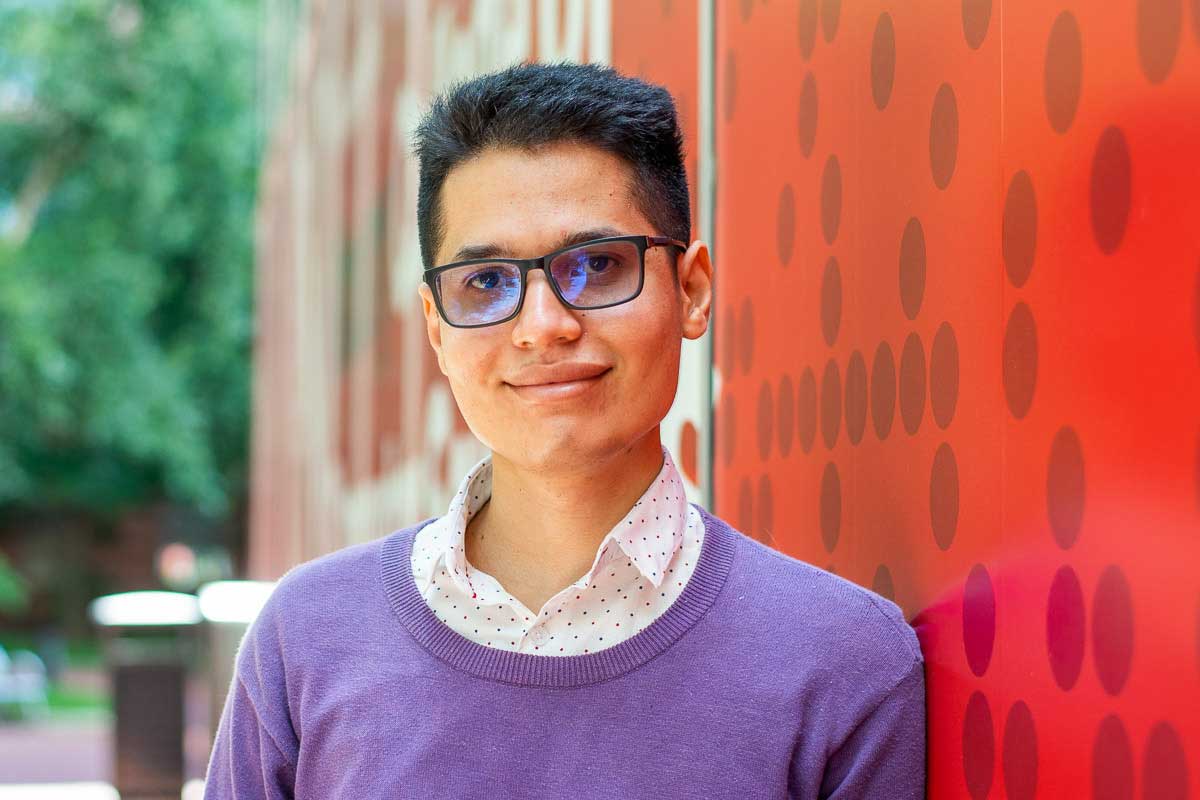Alberto Mario Ceballos-Arroyo
(he/him/his)
PhD Student

Research Interests
- Computer Vision
- Application of image processing algorithms to biological images
Education
- MSc in Systems Engineering, Universidad Nacional de Colombia
- BA in English–French–Spanish Translation, Universidad de Antioquia — Colombia
- Specialist in Analytics and Data Science, Universidad de Antioquia — Colombia
- BSc in Systems Engineering, Universidad del Magdalena — Colombia
Biography
Alberto Mario Ceballos Arroyo is a doctoral student at the Khoury College of Computer Sciences at Northeastern University, advised by Ehsan Elhamifar. His doctoral research, which he began in 2021 and expects to complete in 2026, focuses on computer vision.
Much of Ceballos-Arroyo's research blends computer science with other scientific fields, as both his master’s and doctoral work center around the application of image processing algorithms to biology. Since 2019, he has collaborated with the Laboratory for Molecular and Computational Genomics at the University of Wisconsin–Madison, where he has developed algorithms to process images and signals with the aim of developing a novel genome-mapping system. While obtaining his undergraduate and master’s degrees, Ceballos-Arroyo co-founded a research group to introduce undergraduates to data science and machine learning, developed image processing algorithms for green coffee bean defect detection, searched and reported asteroid candidates in FITS imagery, developed machine learning models for land cover classification, and taught courses in programming fundamentals, artificial vision, and mathematical reasoning and representation.
At Khoury College, Ceballos-Arroyo is affiliated with the Mathematical, Computational and Applied Data Science Lab, where he researches methods to enable domain adaptation and compositional learning in instructional videos. Within software engineering, he loves to implement data engineering and data visualization workflows that enable professionals to obtain insights from data. He was awarded a Fulbright PhD scholarship in 2020.
Labs and Groups
Recent publications
-
Open (Clinical) LLMs are Sensitive to Instruction Phrasings
Citation: Alberto Mario Ceballos-Arroyo, Monica Munnangi, Jiuding Sun, Karen Y. C. Zhang, Denis Jered McInerney, Byron C. Wallace, Silvio Amir. (2024). Open (Clinical) LLMs are Sensitive to Instruction Phrasings BioNLP@ACL, 50-71. https://aclanthology.org/2024.bionlp-1.5 -
Design of antimicrobial and cytolytic peptides by computational analysis of bacterial, algal, and invertebrate proteomes
Citation: Duque-Salazar, G.; Mendez, E.; Ceballos-Arroyo, A. & Orduz, S. (2020). "Design of antimicrobial and cytolytic peptides by computational analysis of bacterial, algal, and invertebrate proteomes," Amino Acids, vol. 52, pp. 1403–1412. DOI: 10.1007/s00726-020-02900-w -
A Morphological Convolutional Autoencoder for Segmenting Pigmented Skin Lesions
Citation: Ceballos-Arroyo, A.; Robles, S.; and Sanchez, G. (2020) "A morphological convolutional autoencoder for segmenting pigmented skin lesions," Engineering Letters, vol. 28, no.3, pp. 213-224